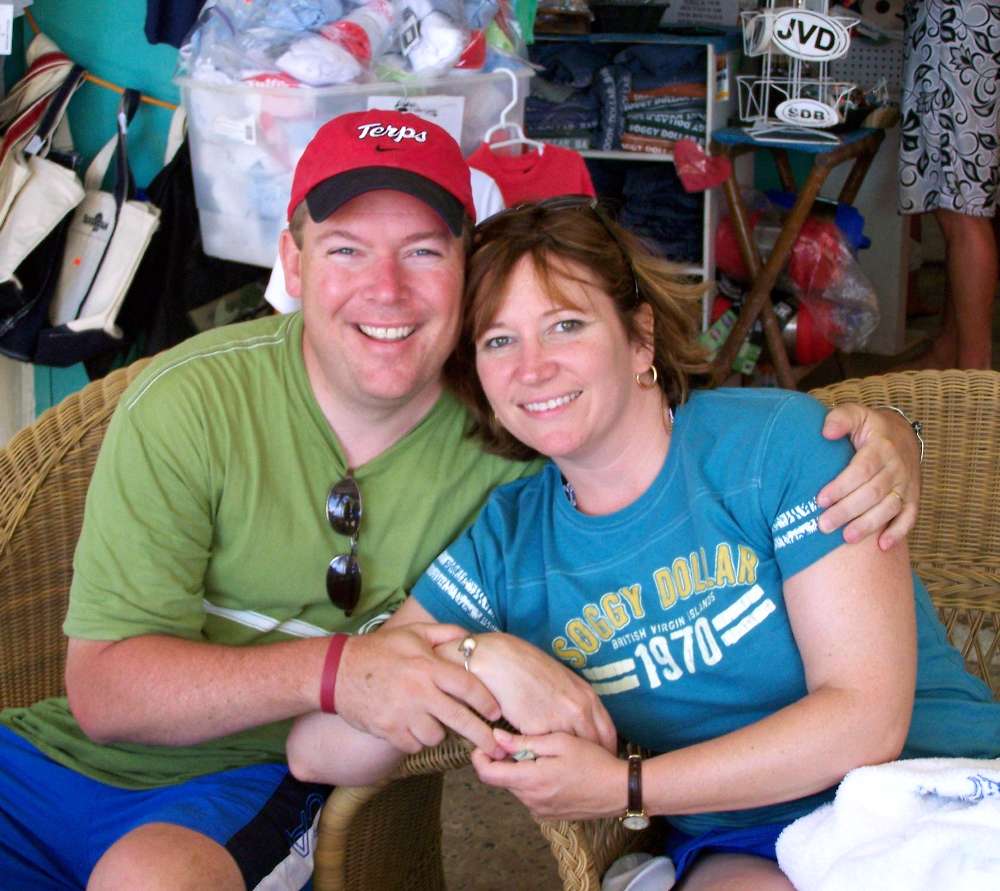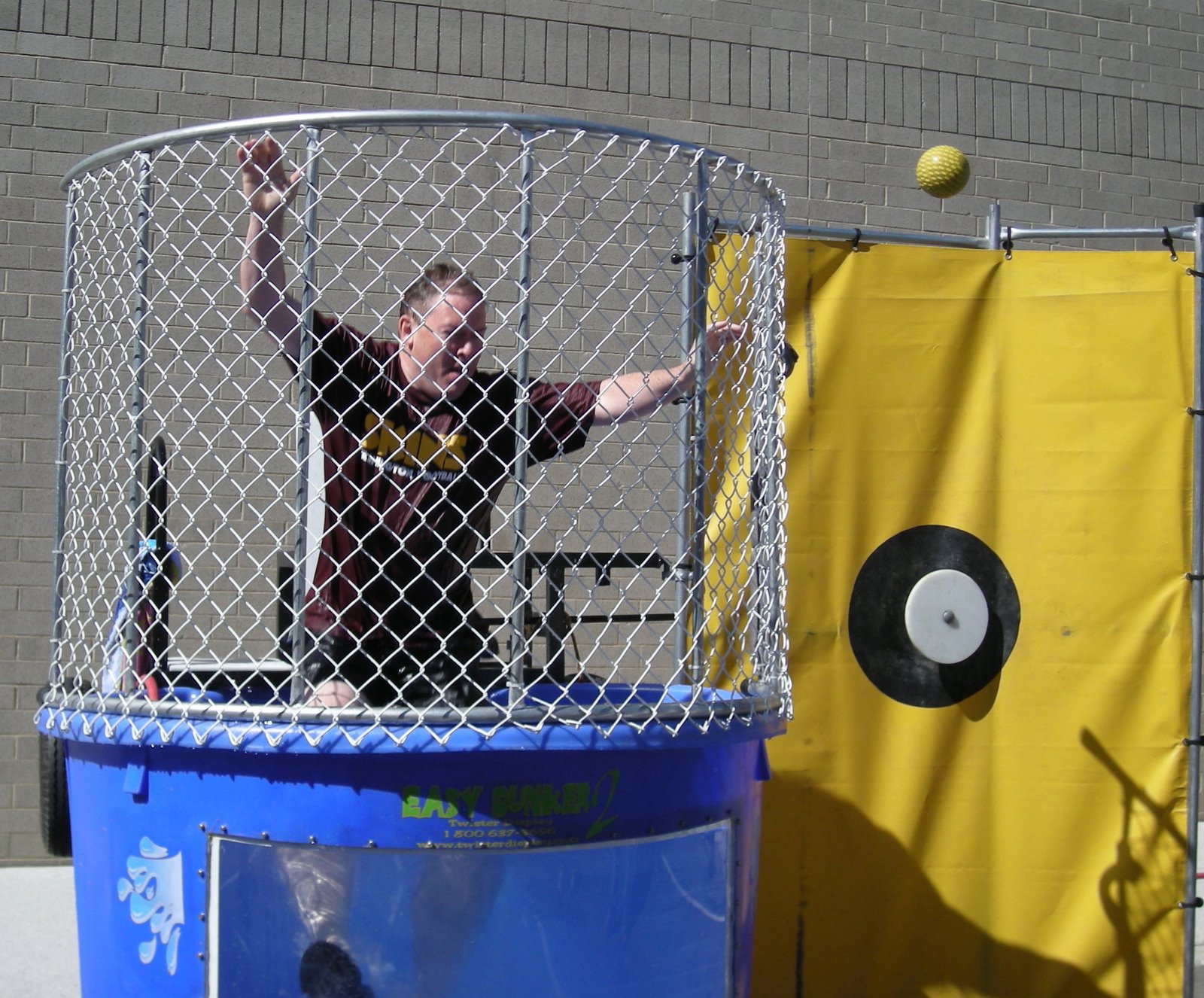I am curious about what you have been doing to bring more RIGOR into your lessons as we discussed during our first week back? I would appreciate you taking a moment or two to share some of the ideas you have implemented to bump-up your expectations and increase rigor for all of our students?
Thanks, Tom
Thanks, Tom
How you may ask? I frequently video tape my students as a reflection tool in order to analyze skill development and acquisition. On Friday, I taped my students during our "Fitness Friday" lesson and today, they analyzed the video from Friday. Using the Daily Participation rubric that I attached to the back of their papers, they completed a self assessment and had to identify specific reasons (and convincing too) why they either earned or deserved that grade. Holding students accountable for their actions and efforts, plus they love seeing themselves on video!
Physical Education Teacher
Laura and I were just discussing how much of a difference the "Right is Right" and "No Opt Out" strategies from Teach Like A Champion have made in our classrooms. These have helped me hold every student accountable for the information, as well as elevate the level of discussion.
8th Grade Reading Teacher
The first unit in the 6th grade Advanced Reader curriculum is on "Human Impact on the Environment" and the first unit in my on-grade level 6th grade Reading is Informational Texts. I decided that the topic of the environment would still be a great theme for my on-grade level kids when we are focusing on Informational Texts.
I've used a few of the tougher articles that I initially found for my Advanced Readers with my on-grade level classes. I just had to make sure I did more scaffolding, vocabulary, and reading aloud. And I think the students are more engaged by the complex ideas in the articles, so long as I'm taking the time to ensure their comprehension.
6th Grade Reading Teacher
6th & 7th Advanced Reader
I've also started incorporating the no opt out strategy with my students and I agree with Emily that I like the accountability that I am seeing as I require more students to participate.
Additionally, I've been making students more accountable for their homework by giving points for accuracy in addition to work completion. As I've walked around to check that they've had their homework, if they did not show their work, they've lost points. Students are getting the message that homework is to be taken seriously.
My on-grade level students have also had to complete a BCR on their first quiz after a day of review of expectations for BCR completion. This is coming soon with my alg and geo students.
8th Grade PreAlgebra, Algebra, & Geometry
I have changed my first quarter project from what used to be a poster project on a scientist to interpreting weather maps, gathering weather data, analyzing it, then making predictions for the future forecast. This is relevant to their everyday lives, incorporates technology (if they gather data using a weather website) and makes them think!
6th Grade Science
Emily, I have employed those same strategies in my room. The kids always look surprised when I tell them "I'm coming back to you with that question again in a minute, so be ready." I've also had kids say to me in response, "Oh yeah, you're training us to be a scholar." Haha. Last week, we gave a kid a 5 second applause for a good answer. The kids did it perfectly, stopping right when I told them to. Realize this isn't exactly "rigor" but it is reinforcing praise for elevated thought...
I've also done a lot of vocabulary prepping and have required the kids to use those words to describe geographic concepts properly. Granted it has taken me dancing around the classroom like an idiot to make it happen, but my students are using "distortion" "revolution" and "rotation" like champs.
Next week I'm starting a "Geo Race" where kids incorporate the map skills I am supposed to teach them (very basic compared to the rest of my curriculum) into creating their own countries. We will use these countries as a springboard for looking at how civilizations and cultures develop throughout the rest of the year. (A lot of "what would your country do in this scenario" type stuff that I hope will personalize the historical situations).
6th Grade Social Studies
I try to review my objectives to make sure I'm considering Bloom's taxonomy. I have the students do a great deal of analyzing and evaluating texts rather than just identifying. I still do identifying skills, but I make sure that I incorporate more critical thinking skills as well.
Lately I have been asking the students why they think I'm teaching them whatever skill we are working on in class and how they might use the skill later in life. I think this really forces them to think about why I'm teaching them the material.
6th Grade English and Advanced Reader
When we met at the first faculty meeting of the year I tried to think of what my definition for rigor was. I didn't really know so I did some research and found a definition that put into words what I was thinking about rigor:
Rigor is the goal of helping students develop the capacity to understand content that is complex, ambiguous,
provocative, and personally or emotionally challenging.
I know I want my kids to be active thinkers, not passive learners. So (even though in the past this has been my weakness) I have been trying a lot more discussion models like fishbowl and jigsaw and holding each student accountable for adding to a discussion. I have also been really challenging my on-level classes to think like a scholar and like Danielle said they have been doing a whole lot of analyzing and evaluating. They have really been rising to the challenge and love it when I tell them that we are doing high school and college level work:) They smile and give one another high fives - it is so cute.
The funny thing is when I looked rigor up in the dictionary these are the definitions: (none of which I feel exactly fit the way education uses it)
From Merrian-Webster:
1 a (1): harsh inflexibility in opinion, temper, or judgment : severity (2): the quality of being unyielding or inflexible : strictness (3): severity of life : austerity b: an act or instance of strictness, severity, or cruelty2: a tremor caused by a chill3: a condition that makes life difficult, challenging, or uncomfortable ; especially : extremity of cold4: strict precision : exactness5 aobsolete : rigidity , stiffness b: rigidness or torpor of organs or tissue that prevents response to stimuli
7th grade English
1. Attempting to perform more data based labs that are student designed and discussing data collected.
2. I look forward to working with Amy on her awesome weather project for the remainder of the quarter.
3. I definitely have to employ the "holding all accountable" strategy more....I still need to work on that. Too often, I'm just pleased when one of my students is able to give me the correct answer.
4. Definitely utilizing web based technology much more such as - learningscience.org, phet.colorado.edu, brainpop, gizmo, etc. Students love it and they tend to work harder I find
Science Teacher: 6th and 8th grade
Like Jeanette I had to look up the definition of rigor at the beginning of the year too!
I have been incorporating cooperative learning into the classroom where students become the teachers. Also, I have been holding the students accountable for their learning by pulling students out of lunch who are falling behind in their work.
7th Grade Science
Recently, Brett and I did a small group discussion assignment. Afterwards, instead of having students raise their hands to answer, we assigned each person in each group a number. Then we rolled a die, and the assigned person had to stand up to answer the question. This forced the student who would normally sit back and let the rest of the group do the work to participate. It also meant everyone had to be actively paying attention to the discussion. It was great hearing a few of the "lost" voices in the classroom. Overall, the students loved using the die!
Special Educator


















No comments:
Post a Comment